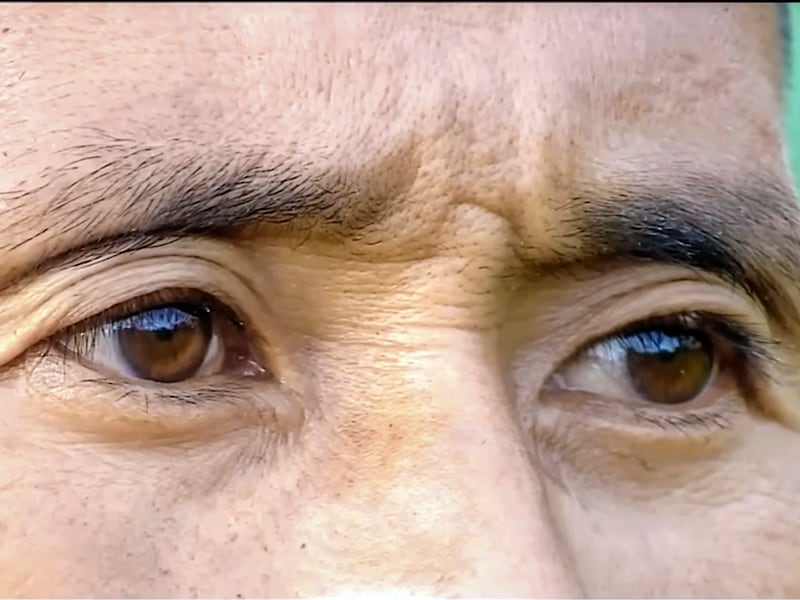A man whose ascetic pursuit of Buddhist studies earned him countless followers both on and off of social media as he traveled by foot across Vietnam has ended his vow of poverty, according to a letter purportedly written in his own hand.
But supporters have questioned whether the letter was really written by Thich Minh Tue, whose real name is Le Anh Tu, and who observes the ascetic practices of Buddhism without actually being a monk in an order recognized by the Vietnamese government as a state-sanctioned religious group.
Known as the “barefoot monk,” Tue has walked across Vietnam at least four times, the last time creating a storm of publicity that prompted the government to ask him to go into retreat in early June, when he disappeared from the public eye.
The Government Committee for Religious Affairs announced on its website at the time he had “voluntarily retired.” But Tue reappeared in his hometown of Gia Lai earlier this month, attracting many followers and YouTube vloggers.
On Wednesday, a handwritten letter with the signature “Minh Tue” and the red seal of Phat Tam Thien Dinh Tue Co., Ltd. -- a business owned by Tue’s brother and sister-in-law -- began to circulate on social media networks.

In the letter, a copy of which was obtained by RFA Vietnamese, Tue says that he will no longer adhere to a vow of poverty as he continues to study the Buddhist virtues.
“Traffic safety conditions and social order are not favorable enough for me to practice begging for alms,” it says, referring to the crowds that have gathered to support him on his pilgrimage. “I do not rely on the Buddha’s ascetic practices anymore.”
The letter noted that during his visit to Nha Trang, the local government mobilized a large police force, set up guard posts, and blocked villages and roads.
It said such disturbances prevent residents from “living freely and comfortably,” and other practitioners from “pursuing the correct virtues of the Buddha.”
Authenticity questioned
Tue’s supporters were quick to question whether he had been forced to write the letter under duress, or whether he even wrote it.
“This is pressure from the government -- authorities will ban anything they can’t control,” wrote Facebook user Donry Nguyen on a page devoted to Tue’s supporters. “They pressured him to give up his vow. When conditions permit, he will continue.”
RELATED STORIES
Vietnamese followers of ‘barefoot monk’ question call for social media silence
Authorities probe orphanage after Buddhist abbot praises ‘barefoot’ monk
Vietnamese YouTubers fined for video of rock resembling monk
Another Facebook user, Nguyen Van Thang, said Tue had never given any indication he might end his vow of asceticism, nor seemed susceptible to government pressure.
“I’ve never heard about him wanting to quit his ascetic practices,” he said. “I only heard that he wanted to pursue that practice until his soul leaves his body.”
RFA was not able to independently confirm the authenticity of the letter.
The purported statement by Tue follows a Nov. 13 report by the official Gia Lai Online Newspaper, which carried another handwritten letter, also believed to be from Tue, that called on authorities to “handle” those who post information and pictures of him online without his permission.
Another report by the newspaper on Nov. 17 said that Tue had announced he would no longer be begging for alms to prevent disruption to “security, order, and social and political safety.”
The tone of the letters is off-brand for Tue, who is known for wearing tattered robes and carrying a rice cooker to beg for alms over the past six years as he criss-crossed Vietnam by foot.

His humble way of life had attracted dozens of monks to join his pilgrimage and earned him the admiration of thousands of people in the places they passed through.
However, authorities in Vietnam are invariably wary of social movements outside of the control of the ruling Communist Party, and many of his online supporters have questioned whether Tue had been forced to write the letters published in recent days.
On his personal Facebook page, musician Tuan Khanh, who often posts comments about Buddhism, noted that Tue and his monastic group were previously dispersed by the police.
He suggested that Tue is being “held captive” and that the letters could be a first step towards taking news about him out of the media in order to isolate him from the public.
Translated by RFA Vietnamese. Edited by Joshua Lipes and Malcolm Foster.
